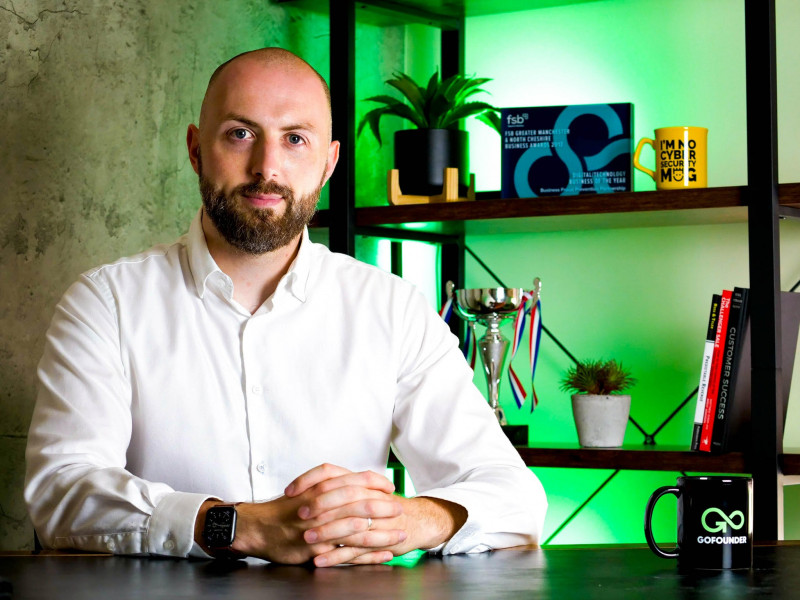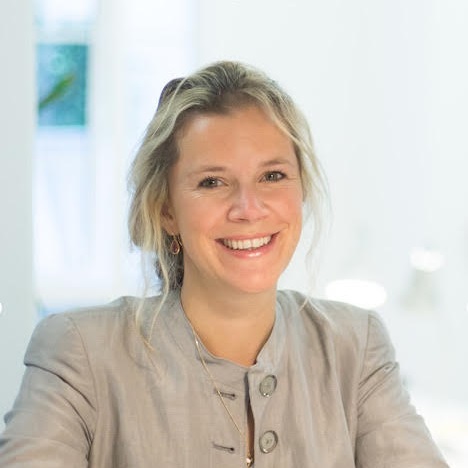
Eddie Whittingham, The Defence Works
Eddie Whittingham built his technology-based cyber security training company The Defence Works entirely by himself using information he found on the internet before selling it for a seven-figure sum.
- What does your business do?
The Defence Works is a cyber security company which provides online security awareness training for employees to help them reduce their risk of cyber crime.
- Why did you decide to start your business?
I had been in the police force for ten years and then I qualified as a lawyer, doing crime related cases. I decided that I wanted to start a business but I wasn’t quite sure what in. I initially started as a consultant on fraud and cyber-crime but I quickly realised that I wanted to build something scalable rather than just selling my time. So I did a bit more research into the market place and quickly realised that most of training around fraud and cyber crime was extremely dry and quite poorly done. I thought that if I could make it at least semi-interesting and present it in a more modern way, and make the training really interactive and based on real life events, with high end animation, then it would likely do very well.
- How did you finance the growth of your business?
It was entirely self-funded. I didn’t have any capital to start off with and when I approached an investor early on when it was just an idea and asked for £200,000, he laughed in my face. I ended up finding a piece of open-source software online, so it was free to use, and I built a learning management system by basically just googling it. Then I used a free trial of some e-learning software to build my first course and bought some animation software for £70. It was a proper home project – I created the content myself from scratch and my wife did the voice overs.
Then I went to some free networking events in Manchester about cyber-crime and got my first customer. They were only paying £15 a month so it wasn’t exactly going to change my life, but it meant I needed to commit to making new training every month to fulfil their expectations. I slowly managed to build up clients over time and was gradually able to improve the technology base and the quality of the content.
I paid myself very little and for the first year I ran the business from home; when I got my first employee I got a little office on the outskirts of Manchester.
I started the business in 2016 and I sold it in 2020 to a Nasdaq listed American company for a seven-figure sum.
- What has been the most difficult or challenging part of growing your business?
I am not from a technical background so it was difficult trying to create a tech focused business without any experience, particularly in the early stages. I spent countless days and nights just teaching myself as much as I could, as quickly as I could.
- What key lesson have you learnt about setting up and growing a business?
You can probably do more than you think you can, but you have got to be committed to learning how to do it. Particularly if it is a service or tech business, there will be some information on it somewhere on the internet.
- What has been your biggest mistake?
Thinking that my first employee should be a salesperson. I thought that would help grow the business but I quickly realised that I was the best salesperson in that early stage of the business, and that I needed to hire someone who could do the work that wasn’t sales to free up time for me to do the sales.
- What has been the secret of your success so far?
Hiring people who are better than me. I was able to teach myself enough in the early days but I am not a graphics designer or good at animation and it became quite apparent that if the business was going to grow properly I needed to hire good people early on.
- What advice would you give an entrepreneur just starting out about how to grow their business?
Surround yourself with people who are in a similar boat because learning from people who are on the same journey as you and going through the same problems is really important. That is why I have just launched another business, Gofounder.com, which is an online community for start-up founders and provides them with resources, tools and shortcuts. I wanted to build something that I would have liked when I was starting out.
- What personal quality or characteristic has been most useful to you as an entrepreneur as you grow your business?
Resilience.


